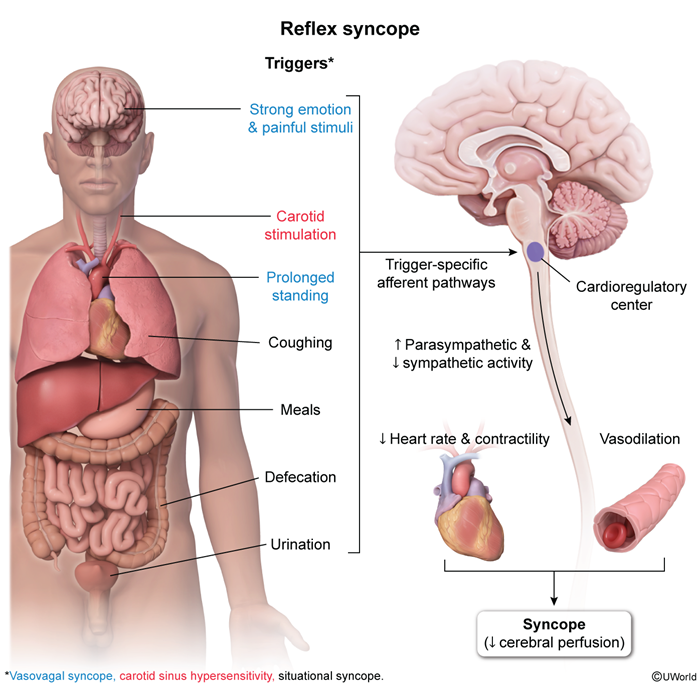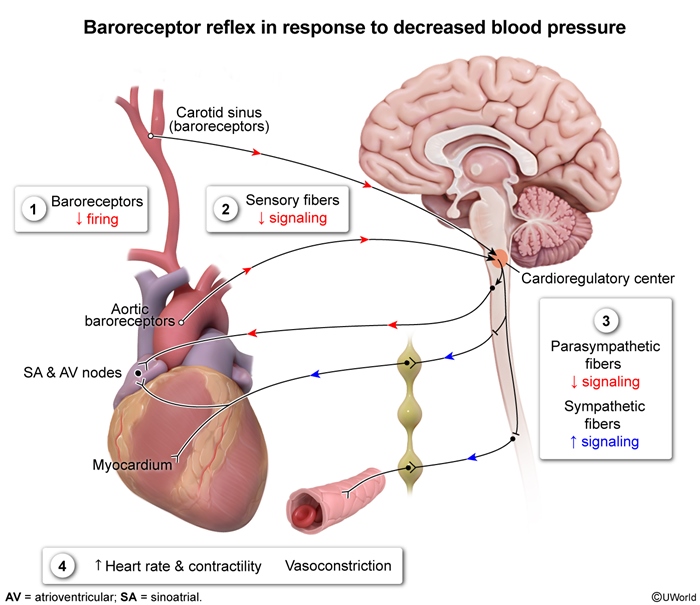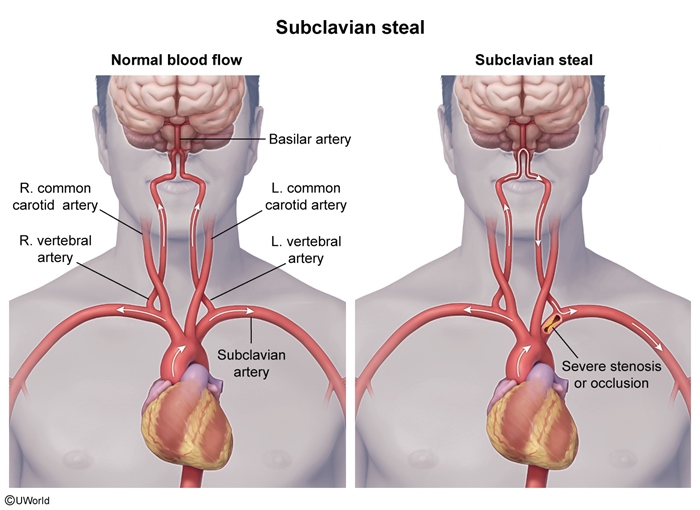Syncope
Article Sections
Introduction
Syncope is a brief loss of consciousness (LOC) and postural tone that results from a transient drop in cerebral perfusion. It is characterized by a rapid return to the baseline level of consciousness within 1-2 minutes. Syncope can be a benign event or it can be a sign of a serious underlying disturbance that increases the risk of sudden cardiac death (SCD). Up to 20% of the population experiences syncope at some point in their lifetime, making it a common medical concern. The details surrounding a syncope event provide clues to the underlying cause and help assess the need for diagnostic workup and intervention.
Pathophysiology
Reflex syncope (sometimes referred to as neurogenic syncope) is the most common type of syncope and results from a temporary alteration in the autonomic nervous system and baroreceptor reflex that leads to a transient drop in blood pressure. A trigger (
Continue Learning with UWorld
Get the full Syncope article plus rich visuals, real-world cases, and in-depth insights from medical experts, all available through the UWorld Medical Library.
Unlock Full AccessFigures


